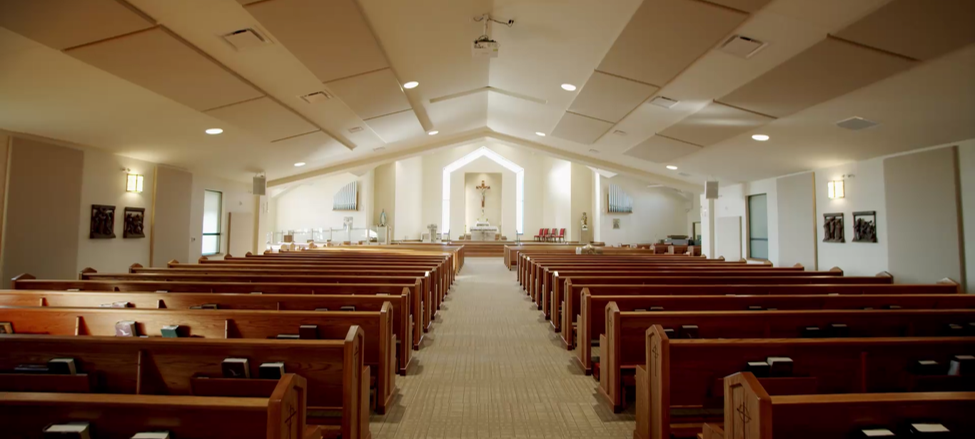- Strona główna
-
Nasza wspólnota
- Archdiocese of Toronto
- Reopening Ceremony Pictures 2019
- Parish History
- Patron Saint
- Parish Schools
- Parish Council Constitution
- Catholic Cemeteries
- Wolontariat
- Dostępność
- Polityka bezpiecznego środowiska
- Nasza wiara
- Życie parafialne
- Sacraments
- Biuletyn
- Skontaktuj się z nami
- Wyszukaj

Breaking Barriers: Supporting the Deaf and Hard of Hearing Community
For those who are Deaf and hard of hearing, isolation and communication barriers did not just emerge during the pandemic. These individuals are often excluded from their communities as they face stigma and discrimination.
On Wednesday, March 8 at 7 p.m, the ShareLife Speaker Series returns with “Breaking Barriers: Supporting the Deaf and Hard of Hearing Community” with Kelly MacKenzie and Mana Bijandgoodarz from Silent Voice, an agency supported by ShareLife.
Below, Executive Director Kelly MacKenzie shares her experience working with the Deaf and hard of hearing community.
1. What are some of the specific challenges the members of the Deaf and hard of hearing community face?
The Deaf community comprises folks from all walks of life – professionals, lawyers, doctors, CEOs, teachers, arborists, welders, to those most vulnerable – those who did not acquire language in their first years, or have accessible education. It is the more vulnerable of the Deaf community Silent Voice services. We focus on Deaf infants, children, and youth, and equity-seeking adults.
I’m hearing, not Deaf, so I don’t speak for or represent the Deaf community; however, Silent Voice is 90 per cent staffed by Deaf and Hard of Hearing staff and directors. From working with them and in the Deaf community, I would say that systemic audism is a challenge the community faces.
Systemic Audism refers to a system(s) that inherently holds a bias in favour of spoken language over signed language; in favour of hearing, assistive listening devices (amplification) and speaking, over being culturally Deaf and using a signed language.
At most, 40 per cent of families with a Deaf signing family member use sign language. That means that 60 per cent of Deaf children do not experience meaningful communication in their own homes with their own families.
2. What can we, as a Catholic community, do to be a better ally of the Deaf and hard of hearing community?
The Catholic community gives to Silent Voice through Catholic Charities supported by ShareLife. Continue to give to your ShareLife campaign in your parish. It makes a difference in people’s lives. If you ever wonder what impact you are making – you are sending Deaf kids to an accessible ASL camp in the summer; you are giving hope; you are connecting Deaf kids with Deaf mentors; you are inspiring Deaf kids to dream and achieve their dreams. You are teaching family members ASL so that they can have communication and relationships with their Deaf children; you are removing barriers faced by Deaf youth and adults. When you give, it goes a long way.
To be an ally in your community, think about access to information and communication, remember that Deaf and hard of hearing folks need to be included, learn how to book sign language interpreting, learn some sign language, learn about Deaf culture. Many things will resonate with you.
3. What do you hope participants can take away from the event?
When you meet, work with, pray with, or are in the company of Deaf people, make an effort to include them. There may be a communication barrier, but the real barrier is not making the effort.
Through the support you give ShareLife, Silent Voice is able to provide an array of accessible programs and services, responding to the needs of Deaf adults, youth, children, infants, and their families in American Sign Language (ASL).
